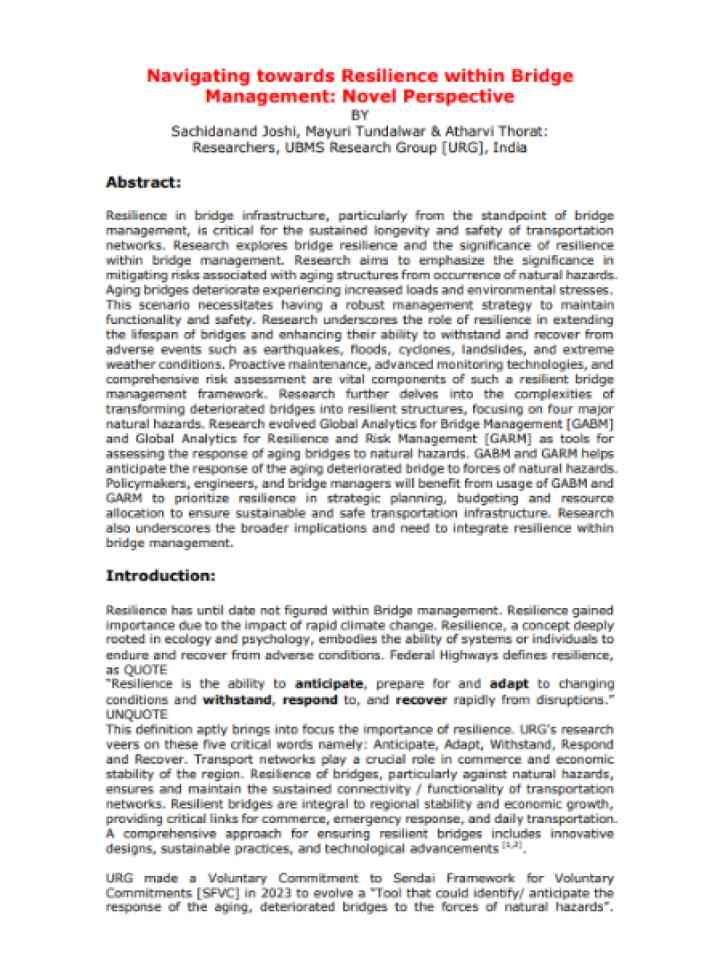Navigating towards resilience within bridge management: Novel perspective
Resilience in bridge infrastructure, particularly from the standpoint of bridge management, is critical for the sustained longevity and safety of transportation networks. This research explores bridge resilience and the significance of resilience within bridge management. It also aims to emphasize the significance in mitigating risks associated with aging structures from occurrence of natural hazards. Aging bridges deteriorate experiencing increased loads and environmental stresses.
The study found that in bridges with simple geometries deterioration significantly increases the likelihood of collapse under severe natural hazards, emphasizing the necessity for targeted resilience enhancements. Key findings reveal that flood velocity, water height, and earthquake forces are crucial factors affecting bridge survival, underscoring the importance of understanding these dynamics to improve bridge design and management. The research also points out the limitations of existing mono-criterion approaches in bridge management and advocates for a transition to multi-criteria decision-making processes to address the complexities of resilience effectively.
Explore further
